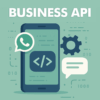Rich communications services, or RCS, are flooding messaging, with early adopters of the side of the brand including the NBA's Sacramento Kings, Virgin Trains in the UK, and French football club Paris St.-Germain.
At the same time, over-the-top (OTT) providers are starting to roll out similar business services. Whatsapp has WhatsApp Business e Apple ha Apple Business Chat, ad esempio. Nella sola RCS, Juniper Research prevede che il mercato supererà i 9 miliardi di dollari di valore entro il 2022, quindi non è difficile capire perché i fornitori di OTT stiano considerando i messaggi aziendali come un premio che vale la pena perseguire.
Proprio come RCS, le offerte OTT promettono un’esperienza utente simile a un’app che è del tutto più coinvolgente di quanto sia disponibile via SMS. Tuttavia, quattro differenze chiave li distinguono.
1. Cover -
Oggi, i fornitori di OTT hanno un’ottima copertura. WhatsApp, ad esempio, rivendica 1,5 miliardi di utenti consumer attivi mensili. L’utilizzo di RCS in confronto è relativamente piccolo, ma sta crescendo rapidamente con il supporto di Google; Microsoft; Samsung e altri OEM; operatori mobili; fornitori di piattaforme di comunicazione come servizio; e fornitori di servizi di messaggistica. RCS sarà una funzionalità nativa su tutti i telefoni e le reti che la supportano, vale a dire che gli abbonati non dovranno scaricare un’app.
Circa 60 operatori di telefonia mobile in 45 paesi hanno adottato le caratteristiche di Messaging-as-a-Platform (MaaP) e profili universali di GSMA all’interno delle loro reti, in modo che RCS sia abilitato. È importante sottolineare che MaaP non solo crea le basi per l’interoperabilità di RCS, ma rende anche possibili servizi basati su chatbot o intelligenza artificiale (AI) per offerte come il personal banking e il trasferimento di denaro in una sessione RCS.
A livello di sistema operativo, Android e Microsoft supportano RCS. Secondo gli ultimi dati IDC, Android ha una quota di mercato dell’85% degli 1,5 miliardi di nuovi smartphone spediti nel 2018. Fondamentalmente, OEM Android come Samsung, LG e Huawei supportano RCS, quindi tramite il solito ciclo di rinnovo di due anni degli smartphone RCS crescerà in modo significativo come funzione nativa di quasi tutti i nuovi dispositivi Android, una base di utenti installata di circa cinque miliardi a livello globale.
Notably, Apple has yet to come on board, but it is rumored to be in discussion with Google, the GSMA, etc. Meanwhile, any RCS message sent to an iOS phone is replaced with an SMS message.
2. Personalization:
quando interagiscono con le imprese, i consumatori non accettano più un dialogo unidirezionale, ad esempio richiedendo un saldo bancario tramite testo. Piuttosto, oggi si aspettano di essere in grado di interagire con le imprese, nel momento del bisogno, sulla piattaforma di loro scelta tramite una conversazione bidirezionale.
La capacità di fornire tale interazione, in modo personalizzato, dove e su quale piattaforma desidera il consumatore, è sempre più critica per il successo aziendale.
Per dare quel contesto in più, in un recente laboratorio GSMA RCS a Londra, un portavoce di Google ha previsto che nei prossimi cinque anni, $ 800 miliardi si sposteranno dall’85% delle aziende al restante 15% per ottenere la personalizzazione corretta.
Le imprese stanno rispondendo. Una recente ricerca di Adobe mostra che i marchi europei stanno investendo nell’intelligenza artificiale per offrire esperienze più personalizzate ai consumatori; L’89% degli intervistati ha dichiarato di vedere la personalizzazione come una chiave per il successo.
Le app RCS e di chat sono progettate per soddisfare la personalizzazione direttamente. Questi nuovi ricchi canali di messaggistica aziendale, se combinati con una profilazione dei clienti ben progettata e sistemi di intelligenza artificiale, offrono ai marchi l’opportunità di ottenere un modo molto più naturale di interagire e condividere informazioni ricche con i propri consumatori.
3. Personal data and trust:
la fiducia dei consumatori è fondamentale per la gestione di qualsiasi tipo di servizio online. Aziende come WhatsApp e Facebook basano i loro modelli commerciali sulla monetizzazione dei dati degli utenti, consentendo la pubblicità mirata. Lo stesso non vale per gli operatori di telefonia mobile. Sebbene possano analizzare e aggregare i dati degli utenti per informare le decisioni di marketing, non li vendono a fini pubblicitari.
Il Regolamento generale sulla protezione dei dati in Europa, così come il mosaico di norme sulla privacy specifiche del settore negli Stati Uniti, hanno aumentato la sensibilità del consumatore all’uso dei propri dati personali, ponendo la trasparenza e il consenso informato come principi chiave nel suo utilizzo.
E affinché le aziende siano conformi, il traffico e i dati della rete di messaggistica non possono essere instradati attraverso paesi al di fuori della giurisdizione normativa. La conformità deve essere esaminata in ogni fase del viaggio.
4. Prices: direct or indirect? -
Il punto quattro è direttamente correlato al punto tre. Gli OTT adottano un approccio misto per monetizzare i loro servizi estraendo valore dai dati degli utenti e addebitandone l’utilizzo alle aziende.
L’approccio di WhatsApp è un esempio emblematico. Le aziende possono rispondere ai messaggi dei clienti gratuitamente per un massimo di 24 ore, ma vengono addebitate una tariffa fissa per paese e per messaggio per le comunicazioni inviate successivamente. Vengono inoltre addebitati quando avviano le comunicazioni.
RCS, d’altra parte, non estrae alcun valore dai dati dell’utente. Come gli SMS, viene addebitato dal corriere all’azienda (spesso tramite un aggregatore). A differenza degli SMS, il payload per messaggio è molto più elevato (immagini, audio, video, ecc.). Mentre RCS è relativamente nuovo e i giocatori stanno studiando come caricarlo in modo equo, un modello probabile comporterà una commissione per transazione integrata con una commissione per sessione per supportare casi d’uso più interattivi. Con il buy-in da parte di tutti nella catena del valore, è previsto un prezzo compreso tra il 10% e il 15% in più rispetto agli SMS.
Nel complesso, il vero vantaggio di RCS è che per molti aspetti è uno standard aperto supportato da un ecosistema complesso, che è allo stesso tempo cooperativo e competitivo. In definitiva, ciò aumenterà la disponibilità delle funzionalità per i consumatori e consentirà alle aziende di portare il prossimo livello di coinvolgimento nelle interazioni con i clienti.
Significa anche che RCS ha le stesse importanti garanzie degli SMS. Cioè, consegna garantita dei messaggi, connessione sicura, latenza da zero a zero, conformità alle normative e altro.
With RCS
Le esperienze di messaggistica possono essere personalizzate, marchiate e costruite utilizzando un toolkit in evoluzione di funzionalità e, in un miglioramento rispetto agli SMS, il mittente viene verificato. I provider di app di chat, invece, operano all’interno di un giardino recintato in cui l’esperienza di messaggistica ha l’aspetto del proprietario dell’app. Questo potrebbe essere OK per le piccole imprese che sono felici di dare la priorità alla funzione rispetto alla forma, ma è probabile che le grandi imprese richiedano le opzioni più sofisticate offerte da RCS.



